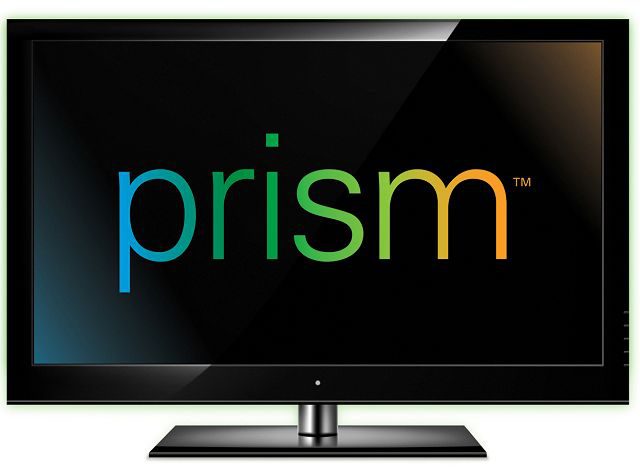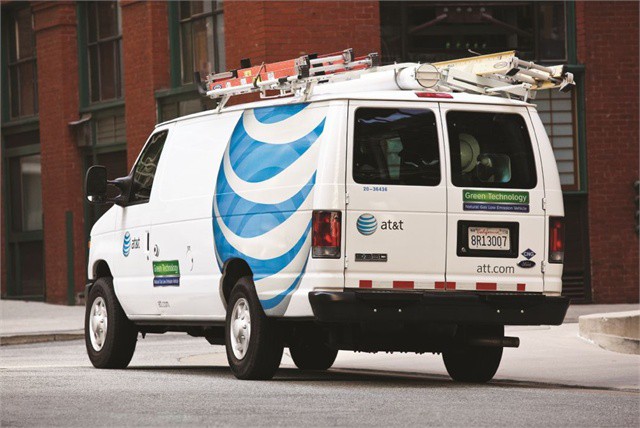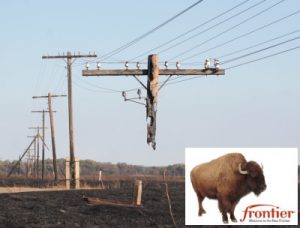
CenturyLink’s Prism TV
CenturyLink has stopped expanding its cable TV alternative Prism TV, and will no longer promote the service to its customers.
“Due to emerging market trends in video content and delivery, we do not plan to expand our Prism TV service offering,” CenturyLink spokesperson Francie Dudrey told Fierce Cable, in a statement delivered at the NAB Show yesterday. “We will continue to provide service and support to our current Prism TV subscribers and make the service available to qualified customers who request it in the markets where we currently offer Prism TV.”
As Stop the Cap! reported last month, CenturyLink is planning to pull back on residential broadband upgrades and services it was expecting to sell on its improved internet platform after the company announced senior management changes. One key sign CenturyLink was moving away from Prism TV was the sudden retirement of Duane Ring on March 30. Ring, a 34-year veteran at CenturyLink had been recently promoted to help oversee CenturyLink’s residential broadband upgrades and was instrumental to the launch of Prism TV in 2005.
Wall Street and activist shareholders had pushed CenturyLink hard to replace long time CEO Glen Post III, who had recently turned bullish on costly residential broadband upgrades. Post’s replacement, former Level 3 CEO Jeff Storey, wants to refocus CenturyLink on its more profitable commercial customers.
Ironically, Level 3 was acquired by CenturyLink in 2016. Now some of Level 3’s top executives will firmly control CenturyLink itself. Shareholder activists were pleased with CenturyLink’s new direction under Storey’s leadership, arguing CenturyLink shouldn’t be devoting significant resources or funding to its legacy phone and copper broadband businesses. CenturyLink will now move away from home broadband services and towards commercial and enterprise broadband, metro ethernet, and cloud/backup services. About two-thirds of CenturyLink customers are commercial enterprises.
CenturyLink will now promote DirecTV to its residential customers instead of Prism TV.
Longer term, a growing number of analysts suspect CenturyLink’s new management will want to sell off some or all of CenturyLink’s residential customers to refocus the business entirely on its commercial customers. The company refused to discuss that issue at this time. CenturyLink may find a difficult market for would-be buyers. Frontier Communications, a regular buyer of wireline assets, is itself mired in debt and financial difficulties.
Investors continue to be skeptical of the merits of costly network upgrades for the nation’s copper wire phone networks. In areas where fiber-enabled phone companies compete directly with cable, price wars can develop, reducing profits and the incentive to invest.


 Subscribe
Subscribe AT&T is staying committed to its wireline network in the face of two significant natural disasters by replacing beyond-repair copper wiring with fiber optics.
AT&T is staying committed to its wireline network in the face of two significant natural disasters by replacing beyond-repair copper wiring with fiber optics. Frontier Communications, mired in $18 billion in debt, is preparing to sell a package of landline assets in California, Texas, and Florida the company acquired just two years ago in a $10.5 billion deal.
Frontier Communications, mired in $18 billion in debt, is preparing to sell a package of landline assets in California, Texas, and Florida the company acquired just two years ago in a $10.5 billion deal. An undisclosed number of Frontier Communications customers in West Virginia were without phone service during the Christmas-New Year’s Day holidays because of copper thefts and slow repair crews that did not begin repairs for up to two weeks after the outages were reported.
An undisclosed number of Frontier Communications customers in West Virginia were without phone service during the Christmas-New Year’s Day holidays because of copper thefts and slow repair crews that did not begin repairs for up to two weeks after the outages were reported.
 Verizon Communications will decommission its existing copper wire facilities in multiple markets in Delaware, Maryland, Massachusetts, New Jersey, New York, Pennsylvania, Rhode Island, and Virginia starting in 2018.
Verizon Communications will decommission its existing copper wire facilities in multiple markets in Delaware, Maryland, Massachusetts, New Jersey, New York, Pennsylvania, Rhode Island, and Virginia starting in 2018.